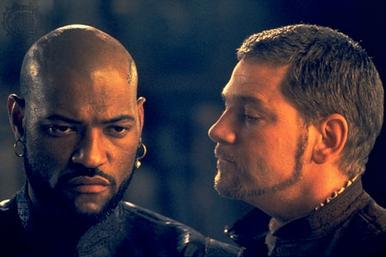Othello Analyzed
By:Ari, Johnny, kitsy, joe, and mEriAl
Othello

It's not just about salivating dogs!
-Pavlov, 65
Pavlov proposed conditioning. Classical conditioning for example, is when your heart beats a little faster hearing the American national anthem at a baseball game vs the Italian national anthem. When you hate a certain smell, it is because your brain associates it with a bad experience. There is also automatic conditioning. Basically there is a certain response that occurs without the need for any learning such as a dogs saliva becoming greater when presented with dry food rather than moist food.
Key points:
a. As a soldier, Othello already has the pre-conditional stimulus of reacting to most situations with physical force, which Iago knows and uses against him.
b. Pavlov created classical conditioning, in which a repeated action, a conditioned stimulus, causes an intended reaction, a conditional response.
c. By constantly telling Othello that Desdemona is unfaithful, Iago is able to get inside his head and create a conditional stimulus.
d. Eventually Iago creates a conditioned response in Othello where he reacts violently and harms Desdemona.
e. Othello perfectly follows Pavlov’s idea of conditioning and thinking, as he allows his thought to be crafted and manipulated by another person.
How moral are you?
Key points:
a. Although Othello starts out as having stage 4, level 2 morality; he ends up using stage 2, level 1 morality. This is because his morals decrease as he is manipulated throughout the story.
b. “The fact that situational forces may sometimes alter moral behavior does not negate the fact, according to Kohlberg, that moral reasoning progresses through the stages he described.”
c. The six stages of universal reasoning might also not be universal and may differ according to gender. Women care more about responsibility, avoiding hurt, and connections between others. This would explain Desdemona’s aid to Cassio.
d. When Othello kills Desdemona, he says it is because she had been unfaithful to him. Stage 4 morality is about maintaining law and order, while doing one’s duty. Back then, marriage was sacred and law. So he accepts that he has killed her because of this.
KEY POINTS CONTINUED:
e. However, one could also say that he objectified his way in doing so which leads him to a stage 2 morality. Stage 2 morality is having satisfaction of one’s own needs being “good.”
f. Othello also tries to do good for the army by promoting a mathematician who would be a good strategist. Yet he loses his morality because of Iago’s influence.
Are you the master of your fate?
KEY POINTS:
a. Throughout “Othello”, Othello is controlled externally by Iago. Iago manipulates and convinces him to kill Desdemona. Othello then realizes that he actually has control and kills himself in retribution.
b. Othello thought he had an internal locus of control, although truly he had an external locus of control without knowing it.
c. This is due to his “open-door” policy. He believed everyone because he was an outsider culturally and racially as well.
Conclusion:
Which
does a better job at explaining why the character acted the way he/she did?
The fact that we think of admiration for Othello, compassion for Desdemona, and scorn for Iago are completely wrong and mislead the true direction of the story. Both artistic sensibility and moral judgment have been ignored, until Othello has become a perfect hero, Desdemona a spotless saint, and poor Iago a fiend incarnate. We perceive the play more dramatically than analytically. Shakespeare created two individualized characters embodying fundamental human qualities which have a good and evil moral value. As the good Desdemona and evil Iago battle over him, he loses grip on grace and slides into a state of iniquity (injustice or violation of duty). Literature can give you a deep insight depending on the viewer.
